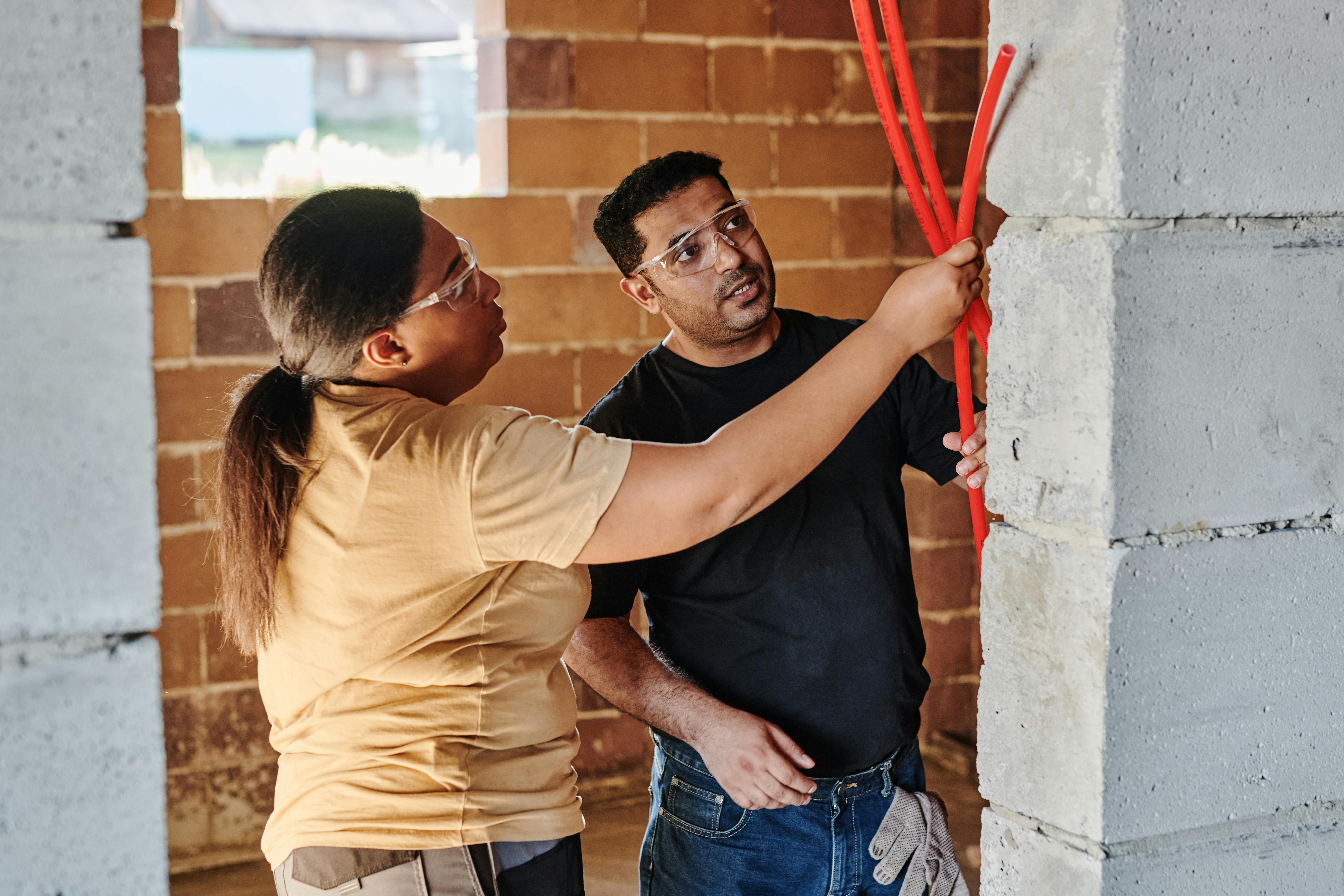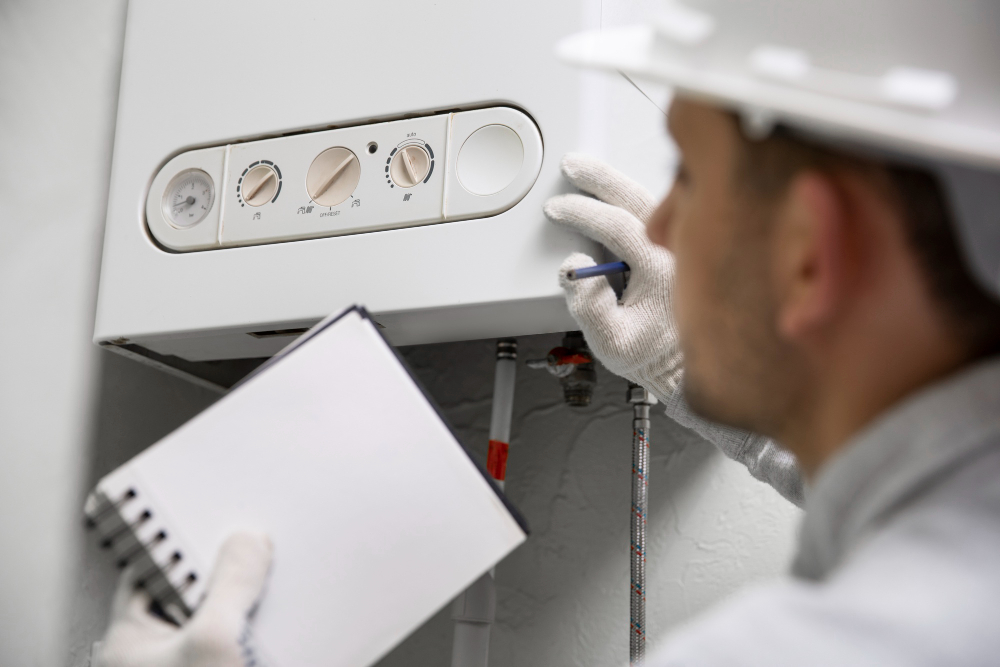5 Signs You Need to Call an Electrician Immediately

Strong 8k brings an ultra-HD IPTV experience to your living room and your pocket.
When it comes to the safety and functionality of your home or workplace, the electrical system is one component that should never be ignored. While some issues may seem minor or easy to overlook, they can be signs of underlying problems that, if left unattended, could lead to serious hazards like electrical fires or electrocution. Knowing when to call a professional can make the difference between a quick fix and a costly disaster.
In this article, we’ll explore five critical signs that signal it's time to call a licensed electrician immediately.
1. Flickering or Dimming Lights
You might notice the lights in your home flickering or dimming on a regular basis. While occasional flickers may be due to a bulb nearing the end of its life, persistent or widespread flickering often points to a deeper electrical issue.
- Possible Causes:
- Overloaded circuits
- Loose wiring
- Faulty light fixtures
Problems in the electrical panel
Flickering lights can indicate that your circuits are struggling to handle the load being demanded, especially when appliances like air conditioners, microwaves, or vacuum cleaners are in use. Ignoring this symptom could lead to damage to appliances or worse, an electrical fire.
When to call an electrician:
If the flickering is frequent, widespread, or occurs when you use other appliances, contact a professional immediately to inspect and repair the system.
2. Burning Smell or Discoloration Around Outlets
One of the most dangerous warning signs is a burning smell coming from an outlet or switch. This could indicate overheating, short circuits, or even smoldering wires behind the wall.
Look for:
A burning plastic smell
Brown or black marks around outlets or switches
Warm or hot outlets and switches
These signs often signal that the wiring has begun to deteriorate or is improperly installed. Continuing to use these outlets can result in a fire or serious injury.
When to call an electrician:
Immediately! Do not use the outlet or switch, turn off power to the affected area if safe, and call a licensed electrician right away.
3. Frequently Tripping Circuit Breakers
Your circuit breakers are designed to protect your home from electrical overloads. If they trip occasionally, it’s typically not a concern. However, frequent trips especially from the same breaker suggest a deeper problem.
Common reasons for tripping:
- Overloaded circuits
- Short circuits
- Ground faults
- Faulty appliances
This could mean you're using too many high-energy devices on one circuit, or it might indicate a wiring issue or a malfunctioning breaker. Repeatedly resetting a tripped breaker is dangerous and doesn’t solve the core issue.
When to call an electrician:
If the same breaker keeps tripping, or multiple breakers trip without an obvious cause, call an electrician immediately to assess and resolve the issue safely.
4. Outlets Not Working or Sparking
It’s common to blame a faulty appliance when an outlet isn’t working, but if multiple appliances fail to work in the same outlet, the issue may be with your home’s electrical wiring. Even more alarming is if an outlet sparks when plugging or unplugging a device.
Other related symptoms:
- Buzzing sounds from the outlet
- Intermittent power supply
- Plug falling loosely from the socket
A sparking outlet is often a sign of faulty wiring or moisture intrusion — both of which pose serious risks. Sparking can ignite flammable material and should be treated as a red flag.
When to call an electrician:
Don’t take any chances. If you see sparks or hear unusual sounds, or if the outlet simply doesn’t work and there’s no tripped breaker, contact an electrician immediately.
5. You Experience a Shock When Touching Appliances or Switches
Electricity should never be felt directly especially not from appliances or switches. If you feel a mild shock or tingling when touching metal appliances or light switches, it’s a sign something is seriously wrong.
Potential causes include:
- Improper grounding
- Worn or exposed wiring
- Faulty installation
- Electrical leakage
This isn’t just uncomfortable it can be fatal. Electric shocks, even mild ones, are a symptom of a short circuit or electrical current escaping its intended path.
When to call an electrician:
Immediately stop using the appliance or switch and call an electrician. Do not attempt to troubleshoot or fix the issue yourself, as it could be life-threatening.
Bonus Signs That Shouldn’t Be Ignored
While the above five are the most urgent, here are a few bonus warning signs that also warrant quick professional attention:
Old or outdated wiring: Homes over 30 years old may have wiring that isn’t up to modern safety standards.
Aluminum wiring: Found in older homes, it poses a greater risk of overheating.
No GFCI outlets in bathrooms or kitchens: GFCI outlets are required in moisture-prone areas to prevent electrocution.
Buzzing or humming from the panel box: Your breaker box should be silent. Buzzing indicates a faulty breaker or wiring.
Why You Should Never DIY Electrical Issues
Electricity is incredibly dangerous if mishandled. Trying to fix electrical problems on your own without proper knowledge, tools, and licensing can result in:
- Electric shock or electrocution
- Electrical fires
- Voiding your home insurance
- Violations of building codes
Licensed electricians have the training and certifications needed to safely inspect, diagnose, and repair electrical issues in compliance with local regulations.
Conclusion
Electrical problems are not just inconvenient they can be deadly if left unchecked. Whether you’re seeing sparks, smelling burning, or constantly resetting breakers, these are signs that your home’s electrical system is crying out for help.
If you recognize any of the five signs discussed above, do not delay call a licensed electrician immediately. Acting quickly can protect your home, your loved ones, and your peace of mind.
Note: IndiBlogHub features both user-submitted and editorial content. We do not verify third-party contributions. Read our Disclaimer and Privacy Policyfor details.



